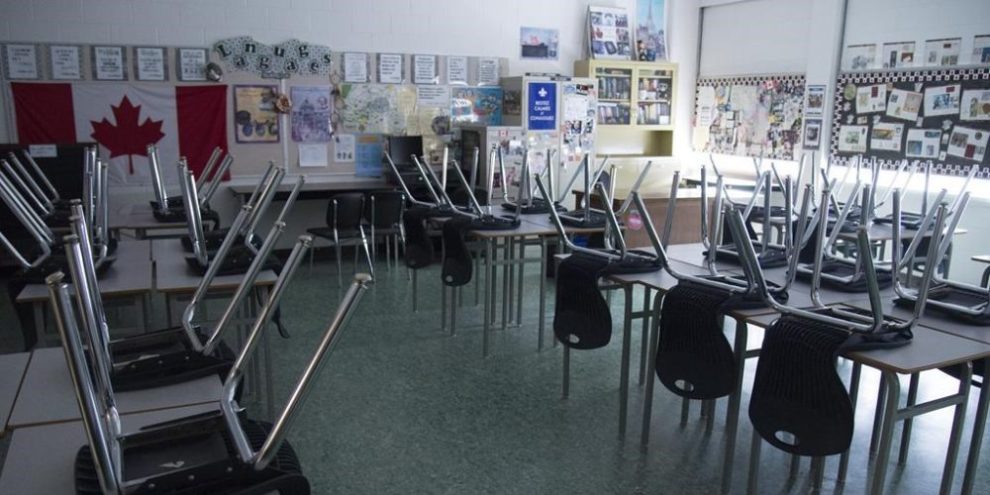
Striking Ontario education workers are set to picket at politicians’ offices across the province today, with a major demonstration planned for the legislature.
That’s where, a day earlier, the Progressive Conservative government enacted a law imposing contracts on 55,000 education workers represented by the Canadian Union of Public Employees and banned them from striking.
The law also uses the notwithstanding clause to protect against constitutional challenges.
But CUPE says the law is an attack on all workers’ bargaining rights and is staging a strike anyway, warning that it will likely last longer than one day.
The law sets out fines for violating a prohibition on strikes for the life of the agreement of up to $4,000 per employee per day, while there are fines of up to $500,000 for the union.
Education Minister Stephen Lecce has suggested the government would indeed pursue those penalties, while the union has said it would foot the bill for fines levied against workers, which could cost as much as $220 million per day.
CUPE plans to fight the fines, but at the end of the day, the union has said if it has to pay, it will pay. CUPE leaders have previously suggested that the union is looking for outside financial help from other labour groups.
Many school boards across the province, including the Simcoe County District School and the Simcoe Muskoka Catholic District School Board, have said schools will be closed during the walkout.
The Ministry of Education has urged school boards to "implement contingency plans, where every effort is made to keep schools open for as many children as possible" and otherwise "must support students in a speedy transition to remote learning."
The government originally offered raises of two per cent a year for workers making less than $40,000 and 1.25 per cent for all others, but Lecce said the new, imposed four−year deal would give 2.5 per cent annual raises to workers making less than $43,000 and 1.5 per cent raises for all others.
CUPE has said that framing is not accurate because the raises actually depend on hourly wages and pay scales, so the majority of workers who earn less than $43,000 in a year wouldn’t get 2.5 per cent.
CUPE has said its workers, who make on average $39,000 a year, are generally the lowest paid in schools and had been seeking annual salary increases of 11.7 per cent.
The union said it cut its wage proposal by more than half in a counter−offer it gave the government Tuesday night and made "substantial" moves in other areas as well. However, the government said it would not negotiate unless CUPE cancelled the strike.
Members of many other unions are set to join CUPE members on the picket lines.





